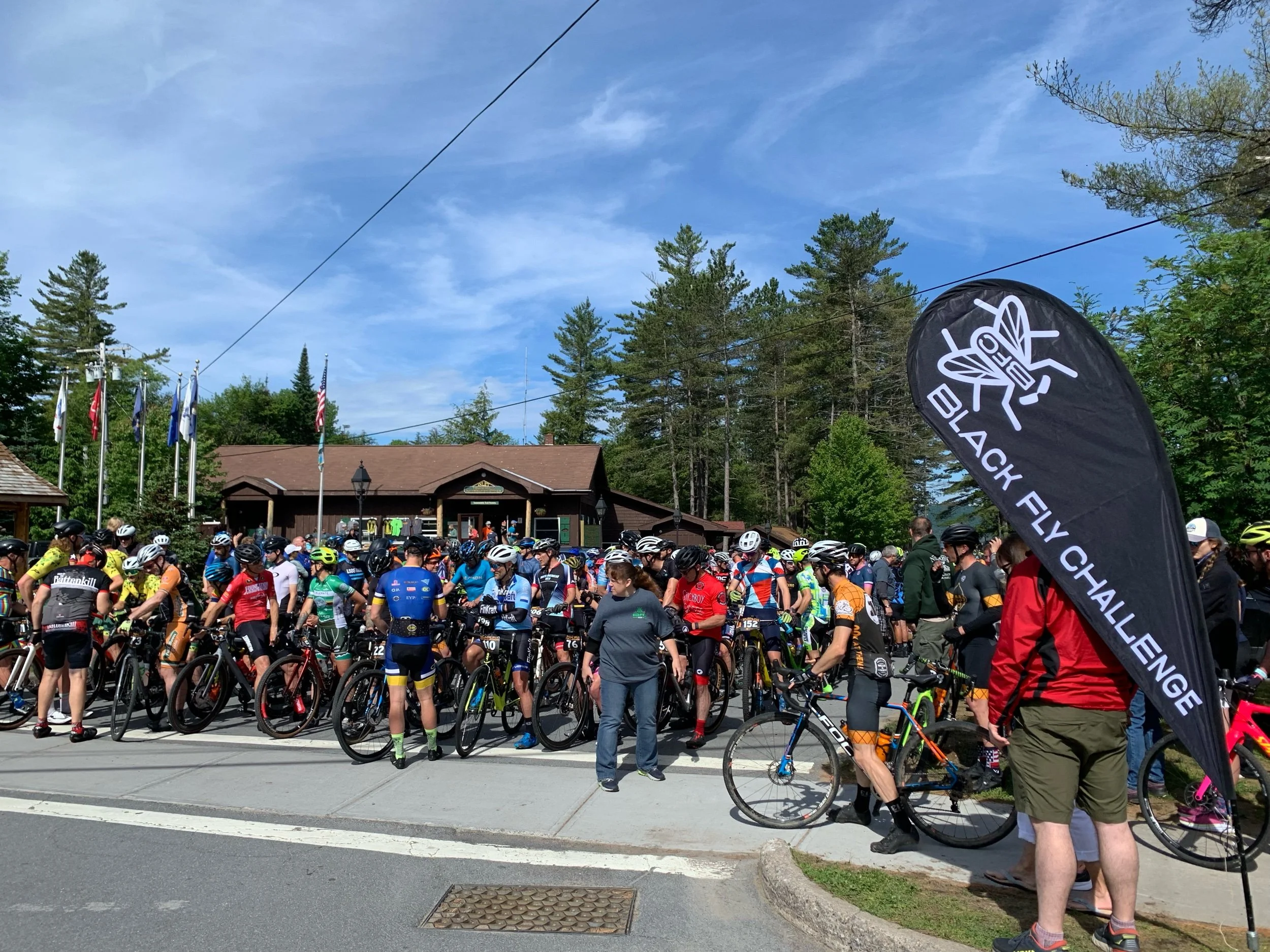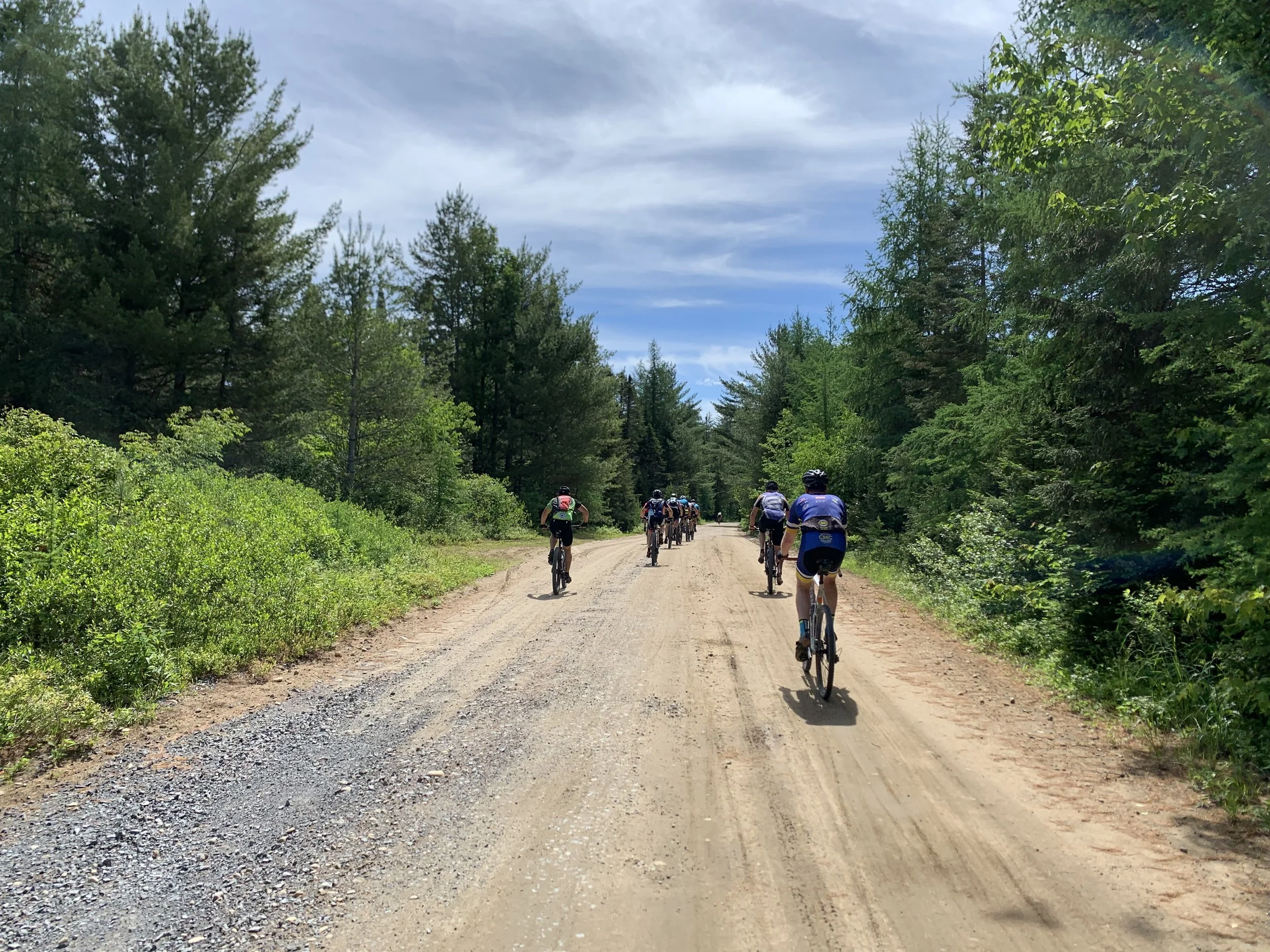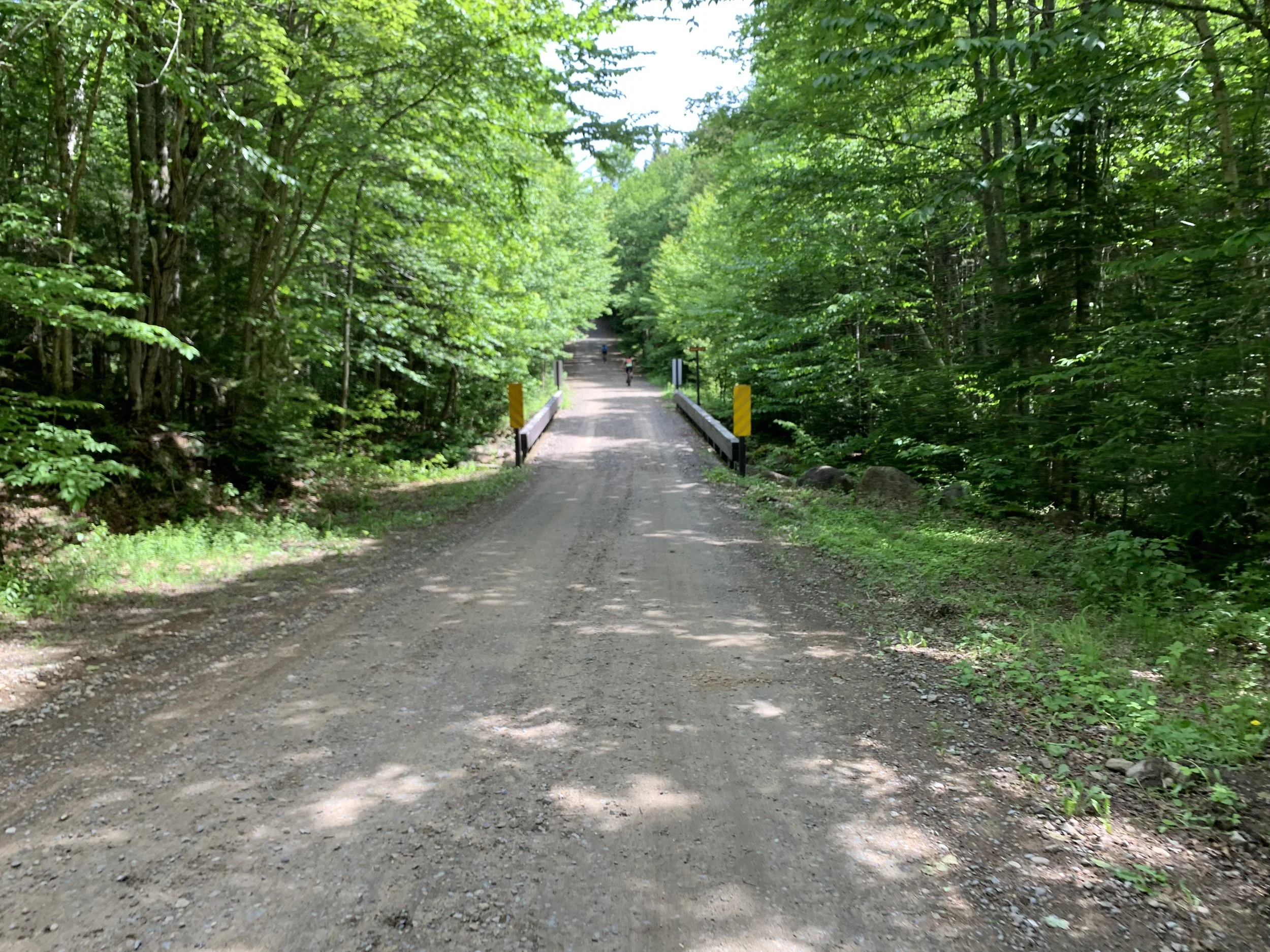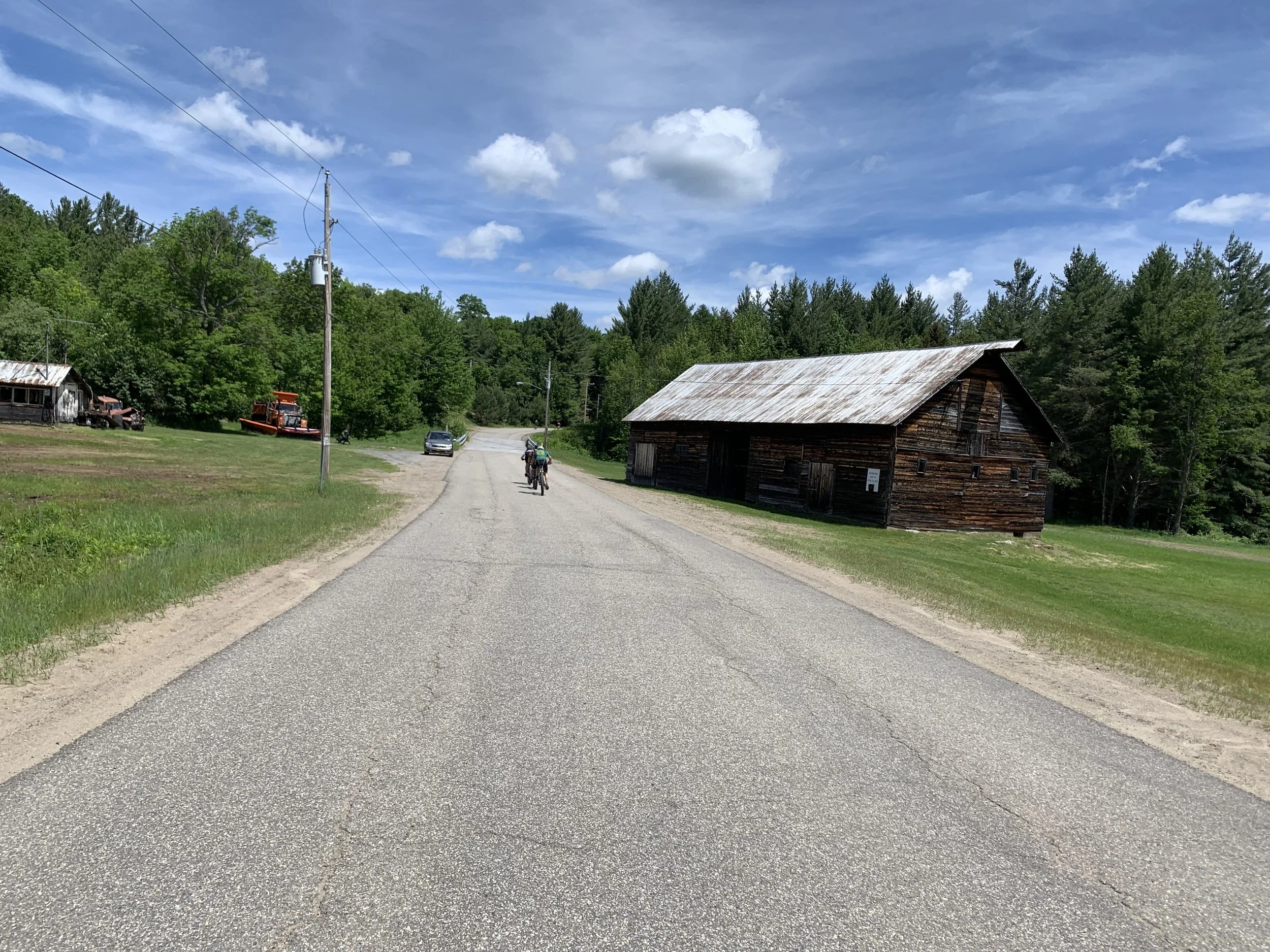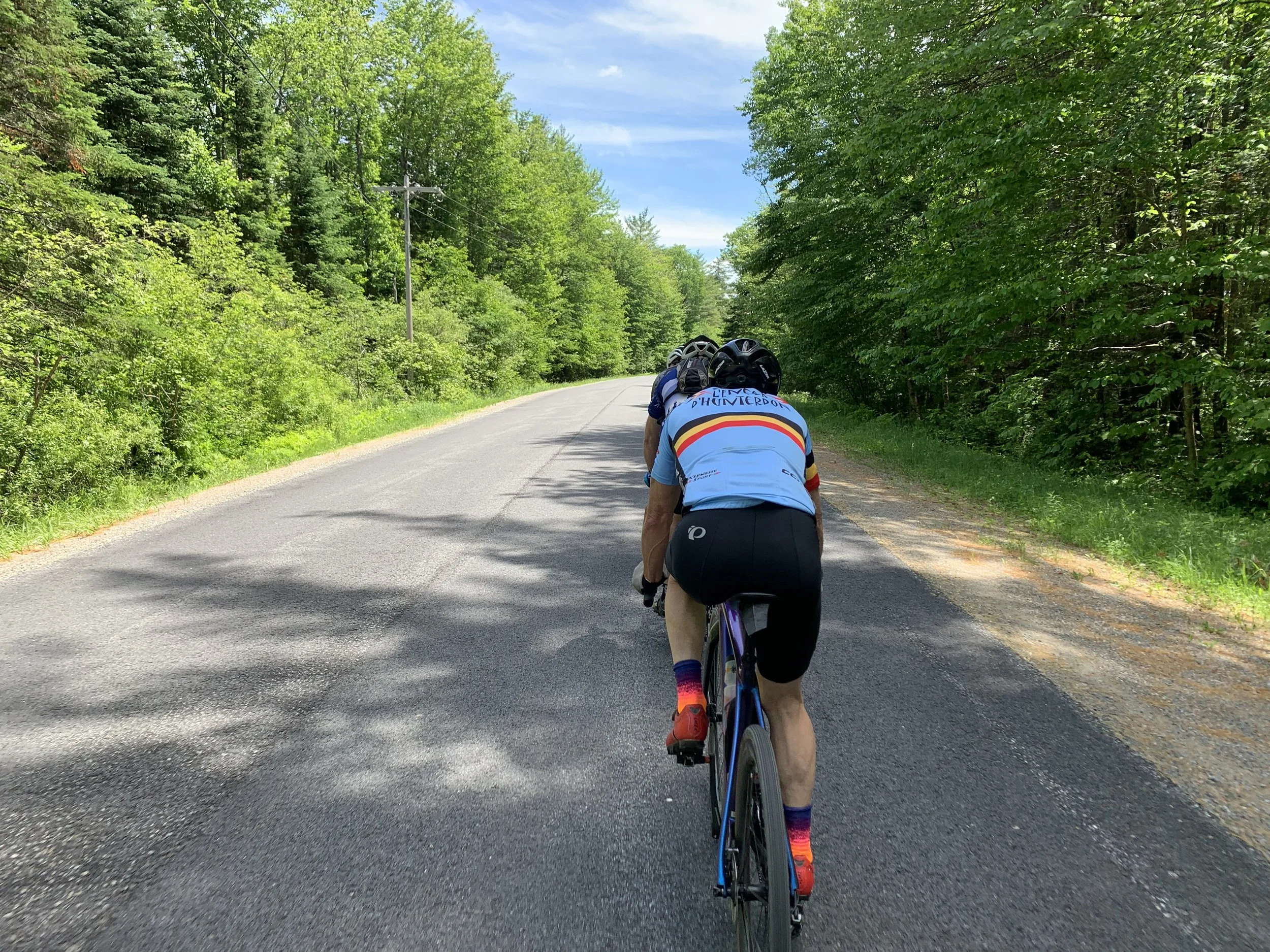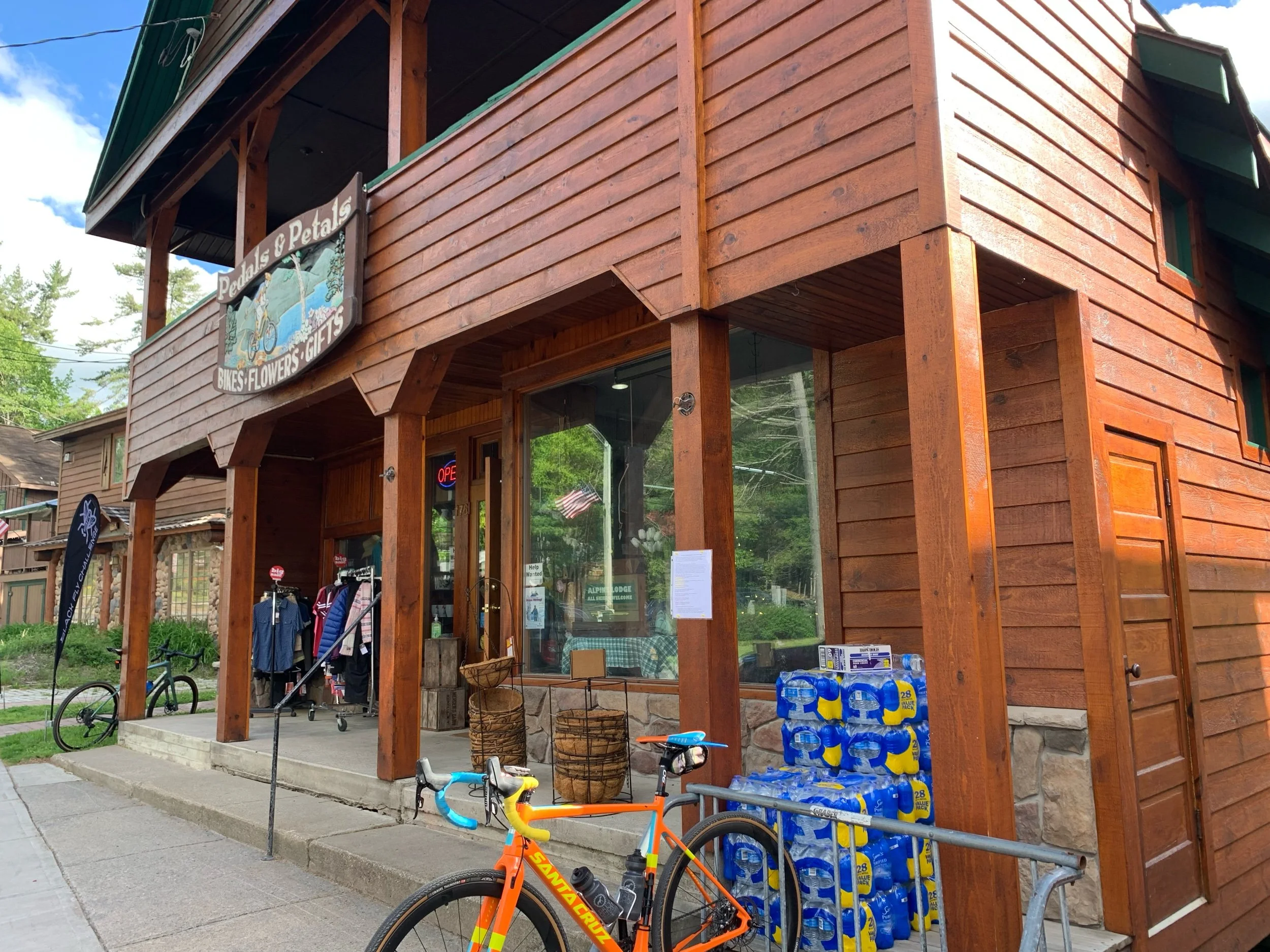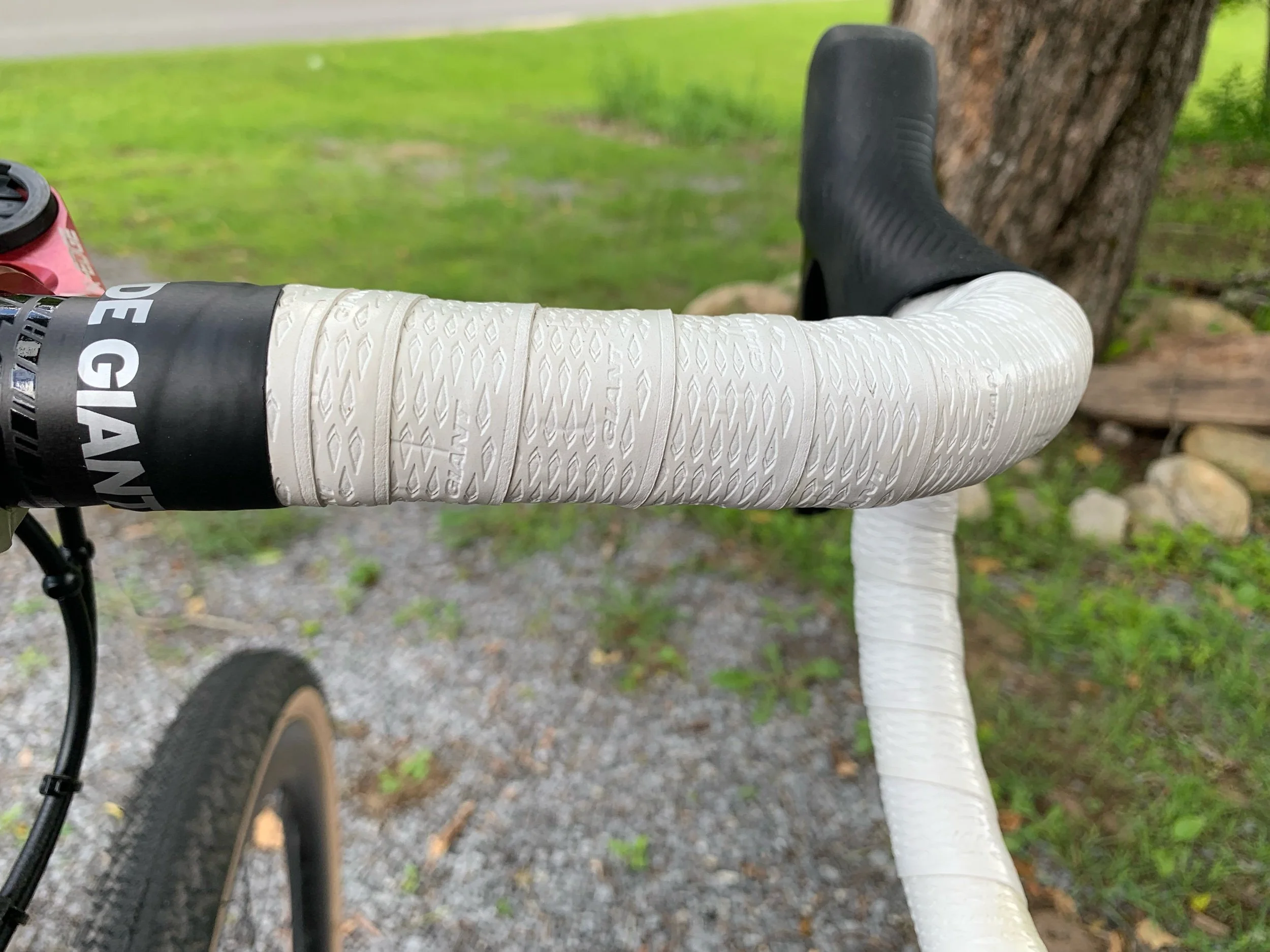Events: Black Fly Challenge 2022
(2022) I was sitting next to The Caboose panini shop in downtown Inlet, NY, when a man approached me. “You do have a black wristband on. You must’ve done the Black Fly.” We began conversing about our experiences. Eventually we parted ways and I walked back to the Airbnb a mile away, reminiscing about the events from earlier in the day.
The Black Fly Challenge is one of the oldest gravel events in the States. Originally scheduled to celebrate its 25th anniversary in 2020, the event was postponed for two years due to Covid which is how I got here. The nearly-forty-mile route goes from Inlet to Indian Lake, NY, on the even years and reverses the direction on the odd years. The route ascends 2,500 feet. There are six classes of participation: mountain bike categories one and two, cyclocross categories one and two, tandem, and junior. But don’t be fooled by the categories. Category one is a swooping term that means ‘has raced before’ while category two means ‘has not raced extensively before.’ The Black Fly Challenge is a mass start where both category ones start together; category twos start shortly after.
Off the quarry gravel and onto the sand loam section to admire the perfect weather for the 2022 Black Fly Challenge.
The event itself is a curious gathering of riders looking to navigate some 25 miles of unpaved roadway between the two towns. Inlet’s start sees roughly three miles of pavement before accessing Limekiln Lake/ Cedar River Road gravel section. With roughly ten miles remaining, the surface is paved again and much to my satisfaction, mostly downhill and fast into Indian Lake. At the start, and under cloudless skies, one rider showed off modifications he made to a 29er, having swapped mountain bike tires for cross tires. He then went off to line up next to a fat bike. The rider he had been talking to was atop the same bike I was, the Giant Revolt gravel bike, and there was a keen interest in what was about to happen.
The sandy sections were the only safe places to take the hands off the bars for photos.
But first we had to get through the pre-race instructions. After mentioning that it felt good to be announcing again, the man with the microphone alerted each participant that, “...there will be a funeral in Indian Lake at 1pm. Police are instructed to stop cars but not the cyclists.” This was the first pre-race announcement of its kind. There was also a passionate plea to take extra caution on the descents, especially for first timers. Then, the palpable feeling of two years of delays, the first category of riders were released in downtown Inlet. We fired our way east to Limekiln Road exactly a mile out of town. Despite having the Airbnb after the first turn, none of what was about to be experienced was explored. The route basically goes uphill for the first 2.3 miles on paved roads, a quick way to string out the field. It was a welcomed spacing out.
Atop the first climb, the half-mile descent was about to send us onto the loose gravel camping road connecting Inlet to Indian Lake. But first we all coasted past a rider super tucking in his dropper post. This is the run-what-you-brung attitude of Black Fly. Just as jarring as a dropper post at Black Fly was the abrupt crossover from paved to unpaved roadway. Add to the fact the group came through mid-descent made focus all the more paramount. But to have a downhill tight right-hand turn with loose gravel snapped the concentration to take this race seriously, if for only to keep the bike out of the woods. The first gravel climb was highlighted by a loud bang somewhere behind us. No doubt a participant’s tire had blown up in the early stages of the gravel road.
There were at least three bridges to navigate on the route in the gravel sector.
Along the route there were volunteers handing out water bottles every five miles. The Adirondack Amateur Radio Association, normally ready for wilderness rescues, were our saviors in hydration. The race went through Moose River Plains Wild Forest, Little Moose Wilderness, and Blue Ridge Wilderness Area. Other words, they manned stations no one had business being, though it was a little tongue-in-cheek to have Search and Rescue out there. Given there were numerous campsites on the road, there were gaggles of campers in foldable chairs giving nothing but encouragement. The entire unpaved portion had the most intoxicating sweet aroma of balsam to double the words of encouragement.
Then there were the casualties: there were many riders swapping out tubes on the road side, one rider at some point turned around to reach one of the water stations to withdraw from a likely mechanical, and similarly there was one rider walking his bike with his drive side crank and chain rings in hand. I was not without momentary peril as two technical descents had me put faith in the bike’s ability to hold the absolute outside line twice, once while passing a rider who bailed in the woods. Even taking the hands off the bars for drinks or nutrition was a risk, an issue that would flare up toward the end in deficient calories. The road went on, uncaring, through the wilderness to the eventual finish in Indian Lake.
Back on to the paved roadways and the views kept coming.
There was a competitive spirit amongst riders. Two mountain bike tandems with middle school-aged riders on the back went by me with gusto. One rider who passed by stuck around long enough to inform me he had crashed into the woods, his front wheel clicking and creaking in agreement that the incident had taken a toll on both bike and rider. He would ride away. Then there was the fleet of fat bikes who went by, got passed, only to blaze down the final unpaved descent with remarkable bravery. Only the paved roads allowed me to pass them the final time. A new burst of power came about knowing the end was coming soon in the form of a small pace line.
The winding paved miles were a return from the wilderness. There was a house here and there once the pavement restarted. Then there were a few farms. Then there were hamlets of houses. Eventually the road gave way to expansive views of Blue Mountain Wild Forest with state troopers directing traffic in the foreground. The route wound around the cemetery where the one o’clock funeral was to be held. I was well ahead of that scheduled event. Then the shoulder was marked by cones and the finish area could be heard. No sooner were the sounds evident than the thump-thump of crossing the timing mat ended the Black Fly Challenge in 2022. I was to report to the tent with my wristband to choose between a beer or a lunch. Since I had come alone, I foolishly turned down the beer as well as the lunch sponsored by Chobani and turned around to ride home via State Highway 28.
Even in Inlet, NY, one can find Kermesse Sport fans.
It was remarked at The Caboose panini shop just how much fun the event was. It felt weird saying the event was ‘fun’ but that is exactly the word to describe it. No license was needed. No pro category. Plus there was just enough of being out of touch with society while in the Wilderness areas to feel like things could get rugged. Fun is certainly the best word to describe an event celebrating its 25th running.
No sooner did I collapse at my Airbnb than texts started rolling in, “How do you feel?!” “What was your time?” And, “Would you do it again?” That final question was easy to answer. Considering the route switches directions next year, I would definitely come back for the 26th edition of the Black Fly Challenge. According to the fellow competitor conversing with me at the panini stand, the finish line in Inlet does not have a neutral finish line and the start in Indian Lake is farther, making it a round 40-mile event. I stopped at the grocery store in Inlet and purchased a half-gallon of chocolate milk to go along with dinner. It was polished off right before bed where all those memories of the race day came back. I think the Black Fly Challenge has earned its bragging rights of being one of the oldest gravel races in the country.


